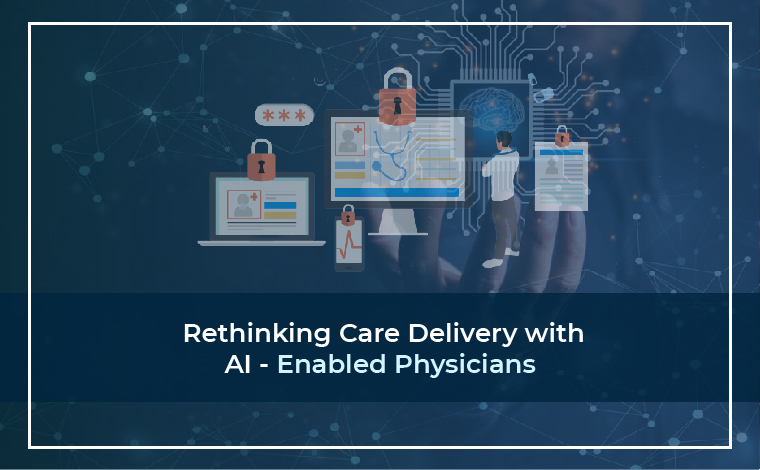
➝ Will healthcare robots replace human doctors in the future?
The endless controversy is currently causing ripples in the hospital management system. There has always been some skepticism regarding the use of Artificial Intelligence in the medical sector.
Most doctors believe that AI technology is exaggerated. They don’t like the idea of automated systems making their decisions for them. However, in light of the rapidly changing healthcare delivery landscape, physicians are now thinking more strategically about enhancing the quality of care and patient experience.
• Evolution of AI in Healthcare
Though artificial intelligence is still in its initial phases of development, it is already prepared to assist healthcare professionals with a range of tasks. Surgical robots have supported surgeons in conducting delicate work with greater accuracy and agility since the early 2000s.
Today, AI-powered robots are rapidly infiltrating other areas of healthcare to improve performance and patient outcomes. In hospitals, for example, some robots assist nursing staff with seemingly simple yet time-consuming activities.
TUG, a robot, can transport multiple racks of medications and lab samples to any destination in the hospital. RIBA (Robot for Interactive Body Assistance) is another useful robot with powerful human-like arms and sensors that can hoist and move patients out of bed. Nanobots, a relatively new but highly promising medical robot, a form of virtual assistance, can locate and attack cancer cells and safely remove foreign matter. With the introduction of next-gen digital assistants, both patients and healthcare professionals will benefit greatly.
With the assistance of AI algorithms, AI-enabled physicians can promote better patient engagement and care experience by handling routine and menial tasks such as ordering prescription refills and replying to patient queries. In this age of social distancing, using such robots for health care interactions is an enticing way to reduce in-person contact between health care workers and patients. Robot physicians can work long shifts and never call in sick, in addition to offering much-needed assistance and relief to overburdened medical staff.
But does this mean that medical professionals are no longer required?
No, not at all.
• AI-powered robots vs. Human Physicians
The healthcare community should not succumb to the fear-mongering surrounding artificial intelligence. Yes, artificial intelligence in healthcare will dwarf all other technological revolutions in the medical world. Humans, on the other hand, will always be required.
AI may provide magnificent solutions, but is it possible for robots to simulate empathy and compassion? Undoubtedly, no! Consider a robot performing a critical surgery on a patient and, for some inexplicable reason, failing to save the patient’s life.
How will the robot inform the patient’s family of this?
It is most likely that the machine would say that the patient has died in a robotic voice. Hence, we cannot expect a robot to demonstrate empathy and compassion during difficult times.
Also, can we put our trust in a robot or a smart algorithm to make life-or-death decisions? We require human doctors to hold our hands and advise us through therapy and general support, even while taking blood samples.
An algorithm cannot replace that. Furthermore, AI-powered robots and algorithms will never get the creativity and problem-solving abilities required for diagnosis and treatment. There will always be human tasks that can be performed faster, consistently, and cost-effectively than advanced technologies.
• Implementing AI in Healthcare
Choosing use cases where AI algorithms can substantially affect clinical settings is critical. Radiology, internal medicine, neurology, and cardiology are just a few fields where AI has been successfully implemented.
In all of these areas, the algorithms silently work in the background to assist physicians in making a real difference, sometimes by supplying a second opinion or simply notifying any impending threat. Nowhere has AI negated the presence of physicians.
Final Thoughts
Artificial intelligence has made significant inroads into the operational and administrative areas of healthcare, and it is making a meaningful difference in increasing the revenues of large health systems.
AI’s potential in healthcare has yet to be realized. Only a few reports are available on the clinical and economic benefits of using AI algorithms in clinical practice in the real world.
SimboAI envisions the benefits of AI in Healthcare and strives to join forces to scale the betterment of patient care everywhere. SimboAI cannot replace humans; rather, it will become companions for humans to reshape the modern hospital system.
